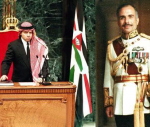You are here
The social dimension of an epidemic: Jordanians and coronavirus
Mar 24,2020 - Last updated at Mar 24,2020
Jordanians, alongside the entire world today, are witnessing what might be the biggest public health crisis of our generation. It is said that epidemics are like wars; they change the way we live without any previous warning. Decisions that would take months to be implemented are placed within hours, and what was once an unimaginable way of life becomes a norm in times of crisis. On January 21, when Italy began identifying its first cases, Sandra Zampa, undersecretary at the Italian Ministry of Health, refused all warnings and even referred to the possibility of an epidemic, similar to the one in China at the time, as a “science fiction movie that had nothing to do with Italians”. In countries like Italy, leaders prioritised their economy, alongside other worries, before the possibility of a deadly virus attacking its people.
But different places have different priorities. And in Jordan, our leaders sent a clear message: Jordanians, and the health of their loved ones, is an undisputable priority. Amidst a time of crisis, Jordanians feel a privilege. We are, indeed, privileged to be in a country that is utilising all its machinery to ensure the safety of its own citizens, albeit its very limited resources. The Jordanian government has formed a multi-disciplinary team utilising all sectors of our society, including the military, secret services and every available human capital to combat this epidemic. In our battle with the Coronavirus, these efforts have been integrated to work coherently together, led by superb leadership that our people continue to express pride in.
If we were to analyse Jordan’s policies in combating the Coronavirus from a public health perspective, we would find that their efforts have been in line with the most ideal public health interventions in theory. However, no privilege comes without a commitment. And today, we, as citizens, have a commitment to pay back to our privilege: we need to understand our role in this historical public health intervention and practice it perfectly.
The social dimensions in public health intervention
For decades, research has shown the effectiveness and the necessity of collaborations from the community members in public health intervention. This is known as the participatory approach in public health science and is the foundation of any successful policymaking. Undoubtedly, the Jordanian government cannot deal successfully with this epidemic without the citizens’ cooperation. In fact, no health authority can intervene successfully without the cooperation of the community, regardless of the number of healthcare personnel, their expertise and the level of medical science and technology available. We need to remember that we, as citizens, are an active member in the fight against the novel coronavirus.
The importance of community cooperation was exemplified during the Ebola epidemic in 2018. For years, people were skeptical about Ebola and it was almost impossible get communities' support in the tracking of contacts, vaccinations and follow-ups, as well as making sure burials are safe and dignified. Any sort of public health intervention was not successful until all members of the communities in West Africa were willing to cooperate and had no sort of negative perception regarding the epidemic. Together with all members of the community, West Africa beat the Ebola epidemic. The result was a healthy nation with empowered citizens who allowed their healthcare system to bounce back from an epidemic.
Our social responsibility in Jordan
During these unstable times, the best reaction is a responsible one. We must understand that by not abiding to the current laws, we are contributing to the failure of what could be one of the best public health interventions implemented globally, right here in our beloved Jordan. As a member of our community, always hold your family and neighbours accountable to staying at home, and put your best practices to raise your morale and that of those surrounding you. Let us continue to display the most altruistic actions towards members of our society. More than ever, we need compassion, empathy and generosity of spirit and action. It is no secret that Jordan is a country of limited resources, but our most valuable resource continues to be our human capital. And it is in times like those the citizens of Jordan must step up to the battle.
They say patience is a virtue. During these unfortunate times, patience becomes a social responsibility that is a vital component in allowing the Jordanian government’s public health intervention to succeed. Today, Jordanians have the power; the power to turn this nightmare into a success story that speaks for the character of the Jordanian people for generations to come.
This storm will pass. But the choices we make now define our character.
Yazan Ahmad Al-Ajlouni is a Public Health Researcher at The University of Cambridge in the UK and at Columbia University Mailman School of Public Health in New York City. He has over a dozen peer-reviewed publications in the field of public health, in addition to co-authoring four book chapters focusing on Neighborhood and Geo-Spatial Health. He contributed this article to The Jordan Times












